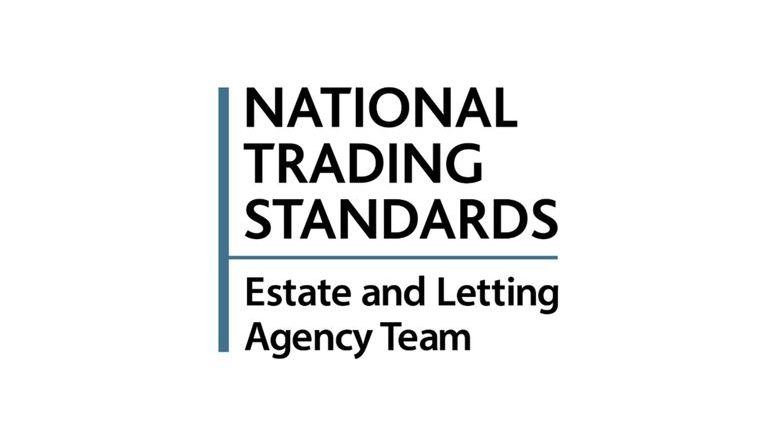Knight Frank invests in Proptech Futures via Fifth Wall
Knight Frank, together with a cohort of other real estate luminaries, is putting cash into Fifth Wall’s coffers to invest in Proptech SMEs looking to put forth innovative solutions for the real estate sector. Fifth Wall, who is looking to expand its reach into Europe, along with Knight Frank and others, will be fronting the cash to ensure that they are at the front of the innovation and solutions that software will provide.
Although Fifth Wall has only existed for about seven years, it already has nearly a hundred investors worldwide and a cohort of real estate players. Wallace & Greiwe, being the visionaries who saw that the property asset class was woefully behind and its analogue axis was ripe for change, have a large portfolio including Opendoor, ClassPass, etc.
The kicker though is that real estate or estate agency corporations are realising that it makes complete sense to be ‘investing’ in the digital hand tools that they will be utilising.

Many agents wrongly see property technology as the enemy. However, it is very much the here and now; strategic investment in great tech that will ultimately leverage your own business is a double win, as when companies exit for multi-millions or even billions, there are huge profits to be made.
With my daytime role running a consultancy for founders of property technology companies in the UK and further afield, as well as helping estate agents to digitally transform their agencies, it is great to see that even more investment is pouring into the sector and agencies are getting into the mix.
A lot has been written about proptech, which is a very broad church covering all sectors that touch the property asset class, commercial real estate, residential, lease and lettings, the planning, build and asset management of property.
If we were to take a small sub section of that, say just the residential estate agency industry in the UK, what agents need to realise is that with the fourth industrial revolution – technology – it is not agents who are replacing other agents by gaining market share advantage; it is agents with technology who are replacing the agents who have failed to embrace technology.
For over thirty years I was very much an analogue estate agent, but if I conducted business in 2022, at a time when Amazon exists and has a market capitalisation of $1.7 trillion, I would understand that the consumer requires a digital play to suit their requirements.
Also, I would quickly realise that AI and big data are our friends, enabling agencies to automate the boring and laborious, allowing humans to do the soft skills, the human facing part of the businesses, as they have more time, deeper knowledge and have a greater value for their paying clients.
More property info needed for sales & lets by the end of May

In a bid to speed up the average 28-week process of taking a property to sale and completion, there is to be a new, less-opaque regulatory compulsion for those selling or letting property.
The watchdog for compliance is trading standards, more specifically National Trading Standards Estate and Letting Agency Team (NTSELAT). Together with other industry stakeholders such as property portals, NTSELAT has put together guidance in a document titled: IMPROVING THE DISCLOSURE OF MATERIAL INFORMATION IN PROPERTY LISTINGS.
There will be three waves of new information required, which will roll out from May 2022. The first of these being:
Part A material information
1. Tenure (applicable to sales listings only) If Freehold • disclose as ‘freehold’ If Leasehold • disclose as ‘leasehold’, and • Current ground rent and any review period • Current service charge information and any review period • Length of lease • If Shared ownership, disclose • details of share being sold, and any additional liabilities or obligations If Commonhold, disclose • details of rights and obligations that apply between the unit holders, and between the unit holders and the commonhold association
2. Council Tax (England, Wales & Scotland), or Rates (Northern Ireland) – disclose • council tax band (E, W & S) • rates payable (NI)
3. Price or Rent For lettings, disclose • the monthly rent, and • any deposit payable For sales, disclose • the price expressed as a single amount
(Note: Displaying the selling price, although not prescribed by law, is considered to be material information – its omission would be a breach of the CPRs if it affected the transactional decision of the average consumer.)
From my point of view, it is a start, but we are very much in the foothills with what could be mandated, as even when all three sets of intel are in place, it will only be a fractional amount of the data set that exists on all property that must be included upfront.
Given the technology exists for a forensic logbook of a property asset, from its plan and construction onwards, together with its title, and the ability to offer finance on that asset to a ‘known’ buyer whose financials are no longer opaque due to open banking, why does it feel that the property industry is still in the stone age?
Luckily, the future of real estate is being coded by younger minds who are going to digitally re-plumb all of these slow processes, and far faster than any government or regulatory body will be able to mandate it.
My hope is that very soon due to the big data readily available from companies like Matt Gilpin’s Sprift, the property industry will fully grasp the nettle and utilise software and AI to give the tech-savvy buyers the answers to their questions before they even ask them.
With this, will we finally move away from the present slow process of discovery that happens after each sale or let is agreed, when all the ‘problems’ come to the surface?
As Howsy runs out of cash, what lessons can be learned?

Howsy, originally named No Agent, which pivoted from being a service to sell property without a traditional agent into a letting ecosystem where tenancies were digitally let and managed at a lower price point, is now probably being acquired by a traditional agency as it has run out of funding.
Having burnt through the thick end of £7 million in seven years, some of the cash being used to buy at least one other distressed digital lettings concern, there are several things that have become apparent.
The first is, and this comes from my day job having met hundreds of property technology and fintech founders, if your original commercial ideation is flawed, however much cash you raise at subsequent funding rounds, the business will fall over at some point.
The second thing is, and this comes from having had now almost 100 founders of property technology and fintech founders as clients, it is really simple to get funding at an early stage via peer to peer lending or crowdfunding if you strike upon a problem or pain point that resonates with the general public.
In this case, the founding team of Howsy had a simple proposition; buying property via an agent is rubbish, we can do better, invest in us and our technology will make it a seamless process, deep joy for all.
Well, I totally agree that the transaction of property is slow, difficult and stressful, but the causes are legal and financial, and less so on the actual agency side. Replicating the myriad processes carried out by humans using coding is very expensive.
The third thing is that once a startup has some capital and moves forward to execute, at this point they realise that everything is far more complex than they imagined. As the months pass and the cash runway gets eaten up, a pivot – the polite expression for completely changing the original plan– comes into being. In this case, buying up other failing ventures to gain critical mass.
The last thing that is apparent is that digital transformation of real estate is happening, like it or not, and the new SMEs springing up in 2022 are not rooted in the mash and grab tactics that start-ups of five years ago employed.
There are literally hundreds of agile, well-thought-out solutions to big and small problems within the property industry. Laser-focused founders and small teams of developers are beavering away on them at this very minute, which will provide real efficiencies and improve the user experience of all stakeholders.
I know this as in my day job as a consultant helping proptech founders to grow and exit, I get to meet over twenty new founders every month. The whole sector is maturing, with over 11,000 property technology enterprises big and small around the globe, plus thousands in the fintech space adjacent to property.
Digital is going to power how we do property, just as digital runs the rest of our lives. It is inevitable that real estate will have digital embedded in it, much like banking went through a decade earlier.
So, the sooner founders start planning solutions that are not disruptors but actually take the time to drill down to real problems that need great solutions with a huge commercial win, the better for all, including the general public who blindly follow the next great idea, with little protection if things go south.
Findingaplace exceeds crowdfunding target, raising over £310,000
As well as helping property technology founders grow and sell their SMEs, and helping companies in property-adjacent sectors with digital transformation, I also invest in start-ups.
Recently, I was on a call with a founder of a proptech where they explained their business model. We also met in person at The Negotiator expo in Park Lane last December. After those two meetings, I decided to invest some of my and Zara’s capital.
I’m really pleased to announce that Mike Savva, CEO and founder of Findingaplace, has not only hit his target figure when he looked to get funding on a peer to peer basis, but smashed through and achieved more than a 20% uptick.

Findingaplace, the London-based SaaS proptech company that brings tenants and agents together to improve the property search experience has successfully broken its £250k Seedrs crowdfunding target, raising over £310k from more than 350 investors.
Known as the matchmakers of the rental property market, Findingaplace is looking to improve the UX in the rental process for both renters and estate agents by eradicating the need for renters to search for properties at all.
Two-thirds of the capital raised will go towards growing the team as well as raising consumer awareness, with the remaining funding directed towards platform development to further enhance both the customer journey as well as agency partner features.
With the platform having launched in London last spring, the funding will play a crucial role in supporting the company’s ambitions to invest in the platform as well as expand both nationally and internationally over the medium and long term.
Findingaplace has ambitions to scale follow a breakthrough first nine months for the company. Over 22,000 tenants have registered and been connected to hundreds of agent partners throughout London, including household names such as Winkworth, Benham & Reeves, Belvoir, and Fine & Country to name just a few.
Research conducted by Findingaplace shows two-thirds of tenant applicants are unhappy with the rental search process, spending an average of 20+ hours searching. Interestingly, three-quarters of agents also expressed frustration due to high costs, reliance on portals and the time-consuming process of screening potential tenants.

Mike Savva, Founder of Findingaplace, said: “We’re thrilled to have not only reached – but far exceeded our funding target, validating our longstanding belief that there is better way to connect tenants and agents together.
“We all know how tough the London rental market is and Findingaplace simplifies the process, ultimately helping more renters find their dream home whilst also making our agent partners stand out ahead of the competition to prospective landlords and retain more revenue.
“More new property portals aren’t the answer to the disappointment renters experience; in-fact the increasing number of portals actually exasperates the issue. Renters are looking for an alternative and smarter way. Findingaplace is their solution.”
Proptech & Property News Weekly Roundup in partnership with Estate Agent Networking
Andrew Stanton is the founder and CEO of Proptech-PR, a consultancy for Founders of Proptechs looking to grow and exit, using his influence from decades of industry experience. Separately he is a consultant to some of the biggest names in global real estate, advising on sales and acquisitions, market positioning, and operations. He is also the founder and editor of Proptech-X Proptech & Property News, where his insights, connections and detailed analysis and commentary on proptech and real estate are second to none.












